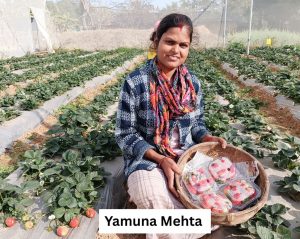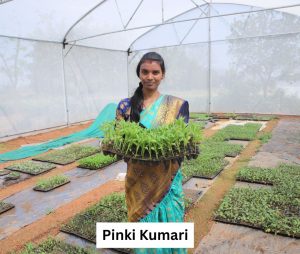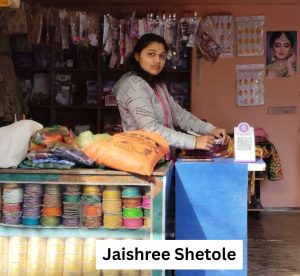 The Government of India has introduced the Skill India Mission (SIM) to deliver training through an extensive network of skill development institutes under various schemes. These include the Pradhan Mantri Kaushal Vikas Yojana (PMKVY), Jan Shikshan Sansthan (JSS), National Apprenticeship Promotion Scheme (NAPS) and Craftsman Training Scheme (CTS) through Industrial Training Institutes (ITIs). Such schemes aim to prepare the youth of India for the future, equipped with industry-relevant skills.
The Government of India has introduced the Skill India Mission (SIM) to deliver training through an extensive network of skill development institutes under various schemes. These include the Pradhan Mantri Kaushal Vikas Yojana (PMKVY), Jan Shikshan Sansthan (JSS), National Apprenticeship Promotion Scheme (NAPS) and Craftsman Training Scheme (CTS) through Industrial Training Institutes (ITIs). Such schemes aim to prepare the youth of India for the future, equipped with industry-relevant skills.
Alongside the Government’s efforts, various case studies from rural India show that it is essential for NPOs and other stakeholders to support the upliftment of rural youth. Meanwhile, there are also success stories from rural India that reflect the kind of revival needed to bring these often-overlooked regions in line with the expected pace of growth. On World Youth Skills Day, here are four young women from rural India who have fulfilled their entrepreneurial dreams with the support of Transform Rural India (TRI), a development design organisation working on transforming India’s bottom 100,000 villages into flourishing communities. They offer a glimpse into the kind of inspiration that can lead to a new rural renaissance.
Anguri Vasuniya
 Anguri Vasuniya, a young woman from Choti Ghendi village in Jhabua, Madhya Pradesh, moved from seasonal farm work in Gujarat to building a home-based business. Married at 18, she and her husband struggled as migrant labourers. Her turning point came when she learned about Entrepreneurship Management Training (EMT) in Petlawad through the Enterprise Facilitation Hub (Nari Adhikar Kendra). Eager to change her life, she sought guidance and, with the help of the TRI team, developed a viable plan. TRI’s personalised mentoring helped her assess her idea and secure Rs 60,000 in support from Sampark. With Rs 1.5 Lakh in total investment, she started a Rui Bati unit. Anguri now earns Rs 18,000 per month, has built a new home, and no longer needs to migrate for work. With steady income, family support, and mentorship from TRI, she has achieved financial stability and now inspires others in her village with her determination and success.
Anguri Vasuniya, a young woman from Choti Ghendi village in Jhabua, Madhya Pradesh, moved from seasonal farm work in Gujarat to building a home-based business. Married at 18, she and her husband struggled as migrant labourers. Her turning point came when she learned about Entrepreneurship Management Training (EMT) in Petlawad through the Enterprise Facilitation Hub (Nari Adhikar Kendra). Eager to change her life, she sought guidance and, with the help of the TRI team, developed a viable plan. TRI’s personalised mentoring helped her assess her idea and secure Rs 60,000 in support from Sampark. With Rs 1.5 Lakh in total investment, she started a Rui Bati unit. Anguri now earns Rs 18,000 per month, has built a new home, and no longer needs to migrate for work. With steady income, family support, and mentorship from TRI, she has achieved financial stability and now inspires others in her village with her determination and success.
Yamuna Kumari
 “It is important to adopt technical methods and use the right fertilisers and seeds to improve income. Scientific knowledge and modern farming techniques have made a huge difference to my life.” These words capture the success story of Yamuna Kumari, a 23-year-old student-farmer from Bero, Jharkhand. While pursuing her post-graduation studies in Geography, she supported her family by farming five acres of land. After joining TRI’s initiative, she began using improved techniques like mulching, nursery management, drip irrigation, and trellis systems. TRI helped set up a Farmer Field School on her plot, enabling her and others to access training and tools. Yamuna now grows a variety of crops round the year and has increased her annual income to Rs 10 to 11 Lakhs, with expenses around Rs 4-5 Lakhs. She also mentors women farmers in her village. Her story shows how knowledge, support, and persistence can create lasting change for women in farming.
“It is important to adopt technical methods and use the right fertilisers and seeds to improve income. Scientific knowledge and modern farming techniques have made a huge difference to my life.” These words capture the success story of Yamuna Kumari, a 23-year-old student-farmer from Bero, Jharkhand. While pursuing her post-graduation studies in Geography, she supported her family by farming five acres of land. After joining TRI’s initiative, she began using improved techniques like mulching, nursery management, drip irrigation, and trellis systems. TRI helped set up a Farmer Field School on her plot, enabling her and others to access training and tools. Yamuna now grows a variety of crops round the year and has increased her annual income to Rs 10 to 11 Lakhs, with expenses around Rs 4-5 Lakhs. She also mentors women farmers in her village. Her story shows how knowledge, support, and persistence can create lasting change for women in farming.
Pinki Kumari
 In the village of Fadilmarcha, Ranchi, Pinki Kumari, a 26-year-old graduate, lived with her husband and in-laws. Despite their dedication to farming, their income remained modest at Rs 2,45,000 annually. Poor access to technology and support, along with recurring crop diseases, left the family financially strained. Things changed when Pinki was selected under the Millionaire Farmers Development Program (MFDP) by TRI. With training and support, she adopted advanced techniques like drip irrigation, intercropping, grafting, mulching, and soil-less nurseries. She set up protected structures for high-value crops and started a Farmer Field School to guide others. Her annual income rose to Rs 13,24,000. She leased 2.5 acres, grew diverse crops, and began training fellow farmers. Pinki earned from tomatoes, brinjal, peas, potatoes, sweet potatoes, watermelon and strawberries. Now called ‘Pinki Didi,’ she is recognised at the block and district levels. Her journey from hardship to enterprise shows what focused training, practical innovation, and committed local support can achieve for farming communities.
In the village of Fadilmarcha, Ranchi, Pinki Kumari, a 26-year-old graduate, lived with her husband and in-laws. Despite their dedication to farming, their income remained modest at Rs 2,45,000 annually. Poor access to technology and support, along with recurring crop diseases, left the family financially strained. Things changed when Pinki was selected under the Millionaire Farmers Development Program (MFDP) by TRI. With training and support, she adopted advanced techniques like drip irrigation, intercropping, grafting, mulching, and soil-less nurseries. She set up protected structures for high-value crops and started a Farmer Field School to guide others. Her annual income rose to Rs 13,24,000. She leased 2.5 acres, grew diverse crops, and began training fellow farmers. Pinki earned from tomatoes, brinjal, peas, potatoes, sweet potatoes, watermelon and strawberries. Now called ‘Pinki Didi,’ she is recognised at the block and district levels. Her journey from hardship to enterprise shows what focused training, practical innovation, and committed local support can achieve for farming communities.
Jaishree Shetole
 “It was the right support at the right time that changed everything,” says Jaishree Shetole, a 25-year-old entrepreneur from Niwali village, Barwani. After surviving domestic violence and returning to her parents’ home with her two children, she met youth fellow Vandana Ahire during a mobilisation drive. With little formal education or income, Jaishree enrolled in tailoring and boutique management training at ITI Niwali. With her family’s help, she started a boutique but soon realised she needed more support. Through TRI’s Enterprise Facilitation Hub, she joined the Accelerated Entrepreneurship Development Program (AEDP), where she gained business skills and mentorship. TRI also helped her secure funding via Rang De, the peer-to-peer online micro-lending platform, when formal loans were unavailable. Today, Jaishree runs a growing boutique, uses digital payments and marketing, and plans to train others in tailoring. Her story reflects how resilience, timely guidance, and community-based support can reshape a woman’s future, one stitch at a time.
“It was the right support at the right time that changed everything,” says Jaishree Shetole, a 25-year-old entrepreneur from Niwali village, Barwani. After surviving domestic violence and returning to her parents’ home with her two children, she met youth fellow Vandana Ahire during a mobilisation drive. With little formal education or income, Jaishree enrolled in tailoring and boutique management training at ITI Niwali. With her family’s help, she started a boutique but soon realised she needed more support. Through TRI’s Enterprise Facilitation Hub, she joined the Accelerated Entrepreneurship Development Program (AEDP), where she gained business skills and mentorship. TRI also helped her secure funding via Rang De, the peer-to-peer online micro-lending platform, when formal loans were unavailable. Today, Jaishree runs a growing boutique, uses digital payments and marketing, and plans to train others in tailoring. Her story reflects how resilience, timely guidance, and community-based support can reshape a woman’s future, one stitch at a time.

